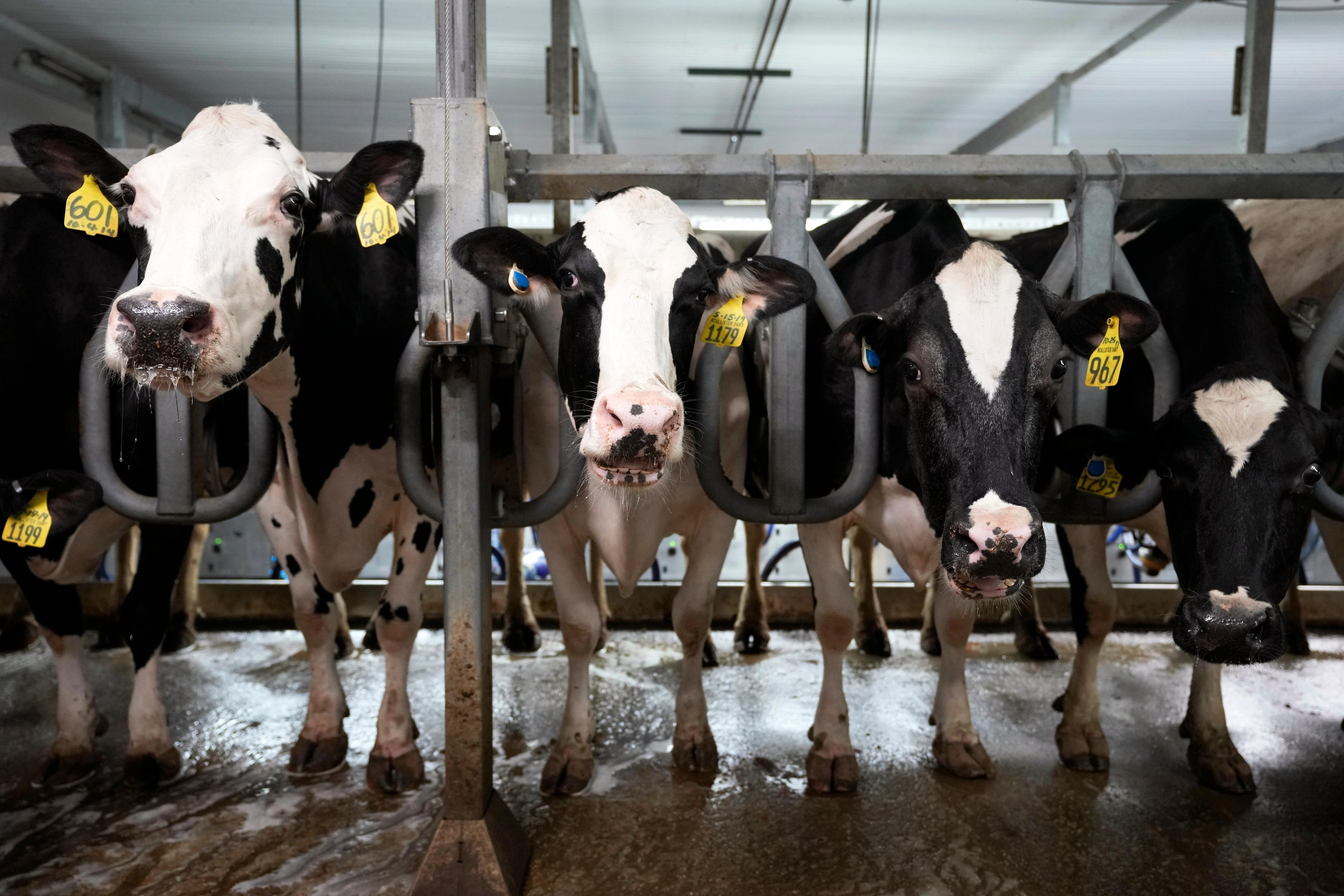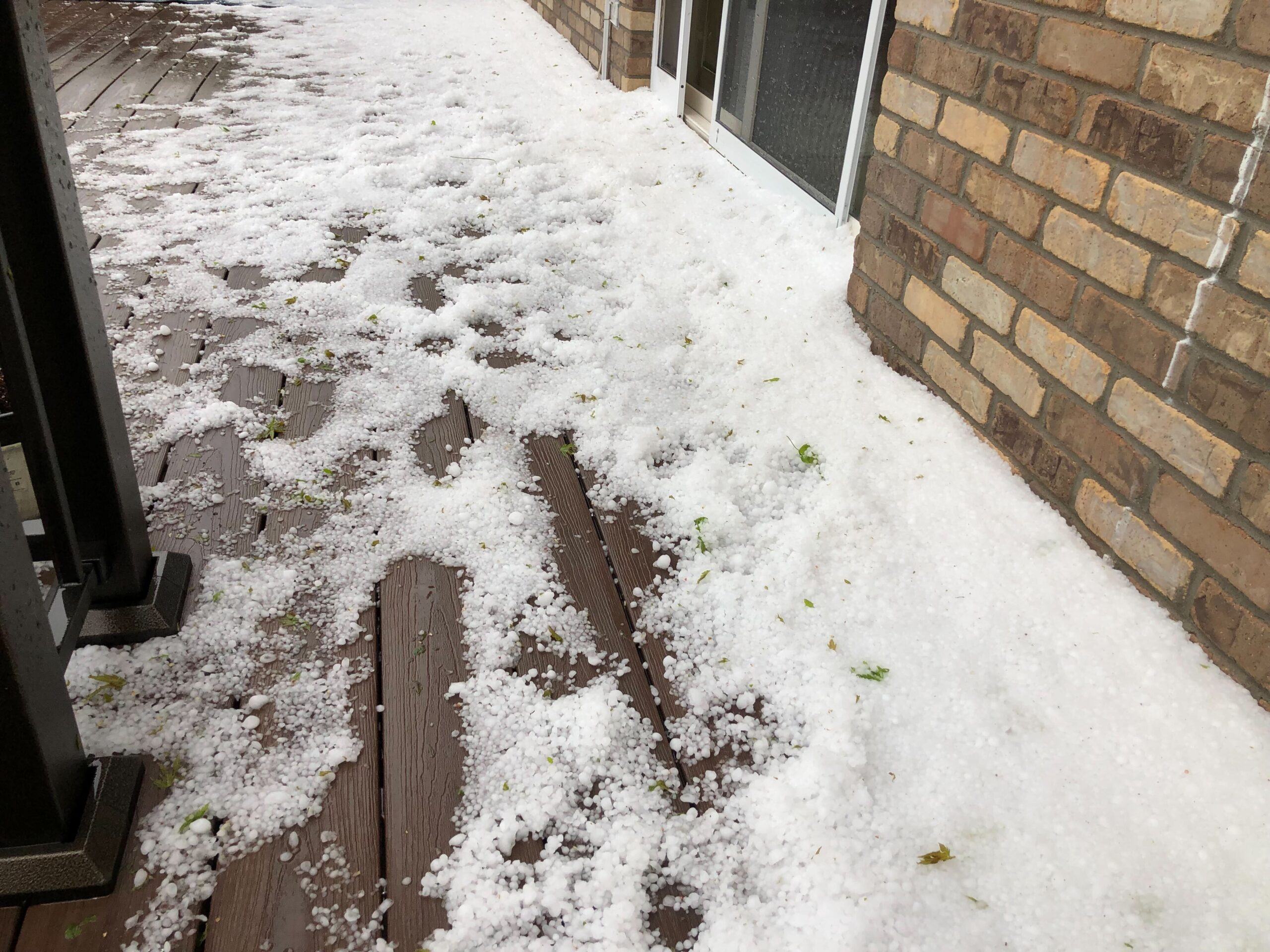
Colorado is seeing a rising number of highly pathogenic avian flu cases in cows. State officials told CPR Friday they’re working with the dairy industry to curb the spread.
The first case in dairy cows in the state was in April. Since then, the state has reported another 18 cases. Colorado recorded 15 just this month, adding six cases Friday to a state website tracking positive cases in dairy cows.
All confirmed cases have been in northeast Colorado.
Currently, there have been a total of 10 Colorado livestock herds, mostly dairy milking cows, affected during the last 30 days as of the middle of this week, according to a website from the U.S. Department of Agriculture.
Dr. Rachel Herlihy, the state epidemiologist, said the risk “continues to be low for humans and is dependent on exposure.”
She said the state is working closely with the agricultural industry and affected farms to ensure that they are monitoring workers and that those workers have access to testing and treatment as needed.
“While we're seeing additional cases rising here in Colorado,” Herlihy said, “we're working closely with our dairy industry and a lot of other partners to try to curb the further spread of this virus here in the state.”
“Implementing really good biosecurity is going to be one of our most important ways to stop and prevent further spread of this virus to additional dairy farms,” said Dr. Maggie Baldwin, the Colorado State veterinarian.
Biosecurity measures include isolating infected cattle, verifying the cleanliness of cow feed and regularly cleaning out water supplies, among other steps.
Earlier this week, Colorado released guidance for livestock owners and event organizers ahead of this summer’s coming county fair show season.
The state is providing personal protective gear (PPE) to dairy workers. Any location with a confirmed case is placed under quarantine to limit the movement of lactating dairy cattle and has to implement measures to limit the possibility of spreading the virus.
The virus has been spreading across the U.S. since spring of 2022. It first appeared primarily in infected waterfowl and domestic poultry. But this year, it began to impact another key agricultural animal: cows.
Colorado’s first case in a cattle herd came on April 25, when the National Veterinary Services Laboratory announced it had found the disease circulating among dairy cows in northeast Colorado.
In the last 30 days, the USDA has detected 59 confirmed cases of avian flu in cows across eight states. Colorado and Michigan both reported 10 livestock herds affected; only Idaho had more, with 17.
The cows in herds showing clinical signs of the virus are separated from the rest of the herd until they recover, according to a spokesperson for the state health department.
The quarantine is for all lactating dairy cattle on the premises and stays in place until the dairy receives two negative tests, one week apart. Also, all lactating dairy cattle in Colorado fall under an Emergency Rule — adopted on April 30 — that requires mandatory testing of lactating dairy cattle moving interstate.
Baldwin said the state is tracking the situation closely.
“One of the good things is we always take a risk- and science-based approach to all of our responses here in the state of Colorado,” she said. “And so if something changes on the risk or risk of disease transmission, whether it's within the same species or other species, we are always able to adjust our response and be nimble and flexible and bring in the right partners.”
Herlihy said the state is offering dairy workers education and training, including about the proper use of PPE.
“Risk of infection is going to be low, but we know it is going to be higher in people who have routine exposure on affected dairy farms,” she said.
The state is monitoring individuals on affected farms, working closely with the producers and foremen on those farms to do that monitoring.
“If individuals were to go on to develop symptoms, those symptoms are reported to us. We coordinate testing for those individuals and coordinate treatment as well,” Herlihy said.
One worker in Texas and two in Michigan tested positive for the virus earlier this year, but none have been recorded in Colorado. The CDC said last month, after the second case in Michigan, the risk to the public remained low “because all three sporadic cases had direct contact with infected cows.”
Information for consumers and veterinarians
The rising number of cases has sparked questions about the risk avian flu could pose to humans, as well as worries about the safety of many common food items.
Colorado’s website provides information for both consumers and veterinarians.
It notes, that both USDA and the Food and Drug Administration (FDA), have said that since commercial milk products are pasteurized before coming on the market, “there is no concern about the safety” of the commercial milk supply, at this time.
Pasteurized milk doesn’t pose a risk to consumer health, according to the site. Pasteurization has continuously been proven to inactivate bacteria and viruses in milk.
Despite the detection of the virus in dairy cattle, the risk to the general public remains low, according to the CDC. More information is available on the CDC’s website regarding the H5N1 Bird Flu Current Situation.
Colorado veterinarians must report cattle illness that presents clinical signs of highly pathogenic avian influenza to the State Veterinarian’s office at (303) 869-9130, via the Reportable Disease Case Report Form, or to their local Veterinary Medical Officer. Veterinarians can request HPAI testing for samples that meet the criteria.









